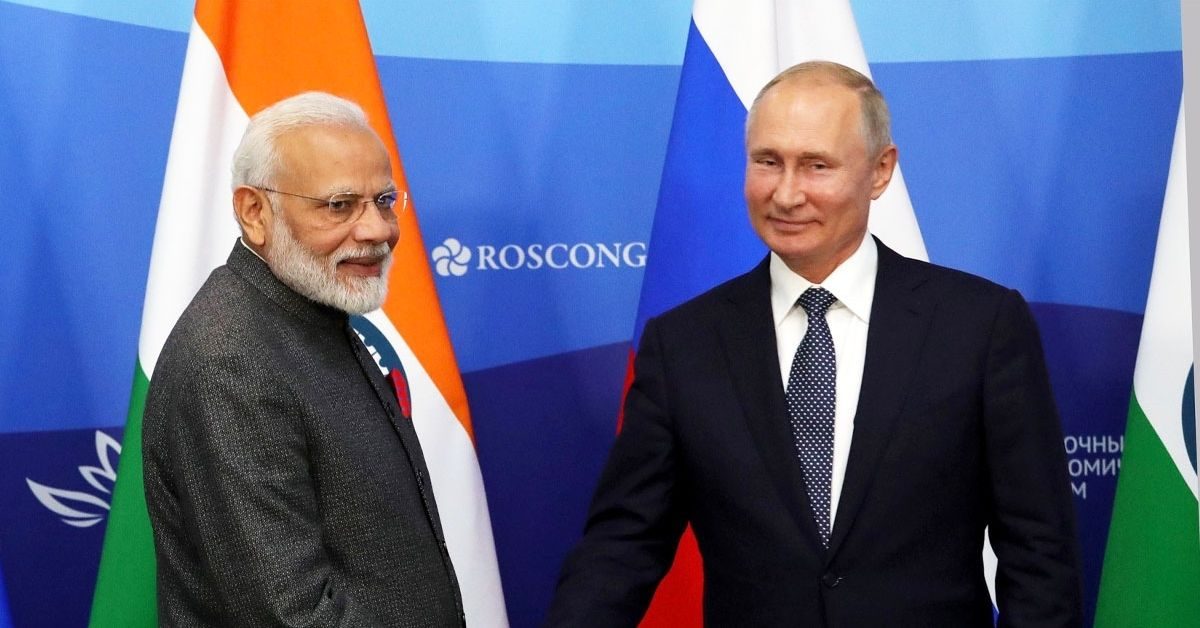The 17-18 February visit is also expected to see both sides discuss possible dates for the India-Russia annual summit that is to be hosted by India this year
Reviving the proposed Chennai-Vladivostok Maritime Corridor and finding ways to increase bilateral trade, which is currently worth -11 billion, will be among the key points on the agenda when foreign secretary Harsh Vardhan Shringla visits Russia this week.
The 17-18 February visit is also expected to see both sides discuss possible dates for the India-Russia annual summit to be hosted by India this year. The meeting between Russian president Vladimir Putin and Prime Minister Narendra Modi could not take place in 2020 due to the covid-19 pandemic, said Indian and Russian officials. Therefore, Shringla’s visit is important as it keeps “contacts at high levels of government on track”, former foreign secretary Kanwal Sibal said.
Matters related to the Brazil-Russia-India-China-South Africa (BRICS) summit that New Delhi will host this year are also expected to be discussed.
Shringla’s meetings with his Russian interlocutors would send a signal that India’s ties with Moscow are independent of its ties with the US and in India’s national interest, Sibal said. This is against the backdrop of the Joe Biden administration extending a nuclear arms pact with Russia but doubling down on pledges against Moscow following the imprisonment of Kremlin critic Alexei Navalny and fresh allegations of hacking by the Russian government.
Bilateral investments between India and Russia have touched $30 billion because of investments in oil and gas, but two-way trade has languished at just $10-11 billion, according to Indian government numbers. Analysts like Sibal have maintained that the primary reasons for stagnant trade is the lack of interest from the Indian private sector, the structure of the Russian economy, and lack of information on the potential of the two markets.
The long routes for trade, with the existing route from Mumbai to the Russian port of St Petersburg on the Baltic Sea coast takes about 40 days, and have only complicated matters, said industry insiders.
A shorter route through the Chabahar port is yet to fructify because of the sanctions on Iran.
With the Biden administration in place, Container Corporation of India (Concor) and Russian Railways are looking to begin commercial runs by end of February on the International North-South Transport Corridor (INSTC)– a 7,200 km-long network of ship, rail and road routes covering 13 countries including India, Iran, Afghanistan, Armenia, Azerbaijan, Russia.
Operationalising the Chennai-Vladivostok route would supplement the INSTC and trade via this route would take 24-25 days. It was in 2019, that India and Russia announced their intent to connect Chennai and Vladivostok, during a visit to Russia by Prime Minister Narendra Modi.
Modi had then extended a $1 billion Line of Credit (LoC) for the Russian Far East – where strategic rival China has made inroads in recent years. The LoC would be “a take off point for (India’s) Act Far East (policy),” Modi had said. The Russian Far East is said to comprise roughly a third of Russia and although rich in minerals, hydrocarbons, timber and fish, it is an economically underdeveloped region. News reports said Tata Power and KGK Diamond are among the companies that have invested in the region.
People familiar with the matter said feasibility studies on the Chennai-Vladivostok route were to begin soon and would act as a “game-changer” in injecting much-needed momentum into economic ties. Ties in the energy sector were strong and efforts were on to broad base economic linkages, one of the people cited above said.
In the railways sector, Russia had shown interest in modernization of Indian Railways’ signaling systems as well as in the private operation of train services, the person said. Digital toll collection in the roads’ sector and inland waterways development were two other areas that Moscow was keen on, the person said.
The two countries would be holding their strategic economic dialogue in the next two months that could give a push to these projects, the person said.
Source : Live Mint







